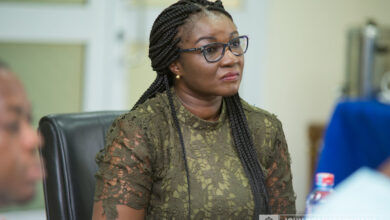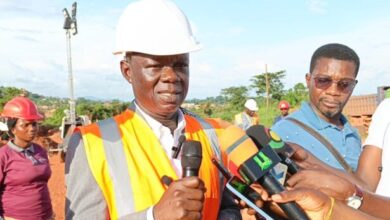Role of Arabic and Somali Translation

People need assistance quickly when they are in danger. In wars, floods, and famines, every second counts. But if people speak one language and rescuers speak another, things slow down. Help gets delayed. Lives are put at risk.
In the Middle East and parts of Africa, Arabic and Somali are the main languages. But aid workers often speak English or French. This gap creates real problems. That’s why Arabic language translation services are important. They help share safety plans, health info, and food rules in ways people understand.
Understanding Local Voices
Each village, city, or country has its own way of speaking. Even the same language can sound different. Somalis in Hargeisa and Mogadishu are not necessarily the same. The Arabic spoken in Jordan and Sudan is different.
People trust those who speak like them. In an emergency, they are scared. They look for familiar words. If aid messages come in a strange language, they may ignore them or get confused.
Helping people starts with understanding how they speak. It also means using the right tone. Some words can sound rude if not said carefully. Translators help make sure the message feels kind and clear.
Why Written Translations Save Lives
Oral translation is useful. But in many emergencies, paper or digital documents play a bigger role. Signs, flyers, posters, and phone messages carry life-saving info.
For example:
- A flyer tells people where to find clean water.
- A poster shows how to stop the spread of disease.
- A form helps someone register for food aid.
If these are not in Arabic or Somali, many people will not read them. But when they are, it becomes easy. People follow the rules. Aid moves faster. Problems get smaller.
Medical Messages Need Clear Words
In refugee camps and disaster zones, health problems spread fast. Doctors give instructions. But if people do not understand them, medicine will not help.
This is where skilled translators are key. They turn hard medical terms into simple local words. A child’s cough or a woman’s fever can be treated better when families know what to do.
For example, in many parts of Somalia, people trust healers more than hospitals. If a translated message speaks with care and respect, it can guide families to safer choices.
Helping Women and Children Understand
In some places, women and children speak less formal versions of their language. They may also speak only their mother tongue, not the official language.
When aid teams use English, some women are left out. They miss info on baby care, food lines, or shelter rules.
This is why English to Somali translation services matter. They make sure every mother, daughter, and grandmother gets the same chance to feel safe.
Even small things, like putting pictures and easy words on health posters, make a big difference.
Schools in Crisis Zones: Speaking the Right Language
In places hit by war or floods, schools often close. Kids miss lessons. Aid groups try to help by building tents as schools. But the books and lessons must be in the right language.
Somali children learn best in Somali. Arabic children need Arabic books. Teachers also need guides in their own language. If not, learning slows down.
Translation helps bring comfort and learning to children. In the middle of pain, school becomes a safe place. A place to smile, to draw, and to feel normal again.
Trust in Translators During Conflict
In war zones, fear spreads fast. People stop trusting strangers. But they listen to people who sound like them.
Translators play a big role in these moments. They are not just changing words. They are building bridges. A soldier may not be trusted, but a local translator can calm a crowd.
In Syria or Somalia, trusted translators walk between aid teams and families. They carry words of safety and peace. That trust can stop panic. It can guide families to safe areas.
Giving a Voice to the Voiceless
In many refugee camps, people must fill forms to get help. These include food cards, shelter requests, or health updates. But if the form is in English and they only speak Arabic or Somali, they can’t fill it.
That means no food, no medicine, and no roof.
When translators rewrite these forms into simple local language, everyone gets a chance. Poor reading skills are no longer a block. Even the old, the young, or the sick can get help.
This is where translation turns into action. It gives voice to the voiceless.
Cultural Clarity in Translated Messages
Words can be tricky. Even when translated, they may carry the wrong meaning if culture is not understood.
For example, telling a Somali mother to “see a mental health doctor” might sound scary. But saying, “speak to someone about stress and sleep” sounds caring and calm.
The right words keep respect in place. They avoid shame. They show love.
A good translator knows how to say hard things in a soft way. That is why working with native speakers matters. They understand more than grammar, they know the heart of the language.
Translators Are Not Just Helpers, They Are Heroes
In disaster zones, translators are not behind the scenes. They are in the middle of the action. They talk with doctors, drive with food trucks, and walk into floods and rubble.
They carry words like water, clear, needed, life-giving.
Many times, the first kind voice someone hears after losing their home is from a translator. That voice guides them to food, shelter, or safety. In that moment, language becomes a life raft.
Planning Ahead with Language in Mind
Emergency teams now plan with translation in mind from day one. They do not wait for confusion. They start with the right language tools. This means:
- Choosing trusted translators who know local ways.
- Writing simple messages for wide understanding.
- Testing messages with small groups before sharing them widely.
- Training local people to help with spreading messages.
With these steps, aid gets smoother. More lives are reached. Less is lost in translation.
Conclusion
Language shapes how people feel, think, and act. In the world of humanitarian aid, it decides how quickly help arrives, and how deeply it is felt.
Arabic and Somali speakers live in areas often hit by crises. They deserve clear messages in the language they know best. Translation is not a luxury here, it is part of the rescue.
Each time a message is shared in the right words, hope spreads. Each time a child hears help in their mother tongue, fear fades.
In the hardest moments, words matter more than ever. And when those words are right, they heal, they guide, and they save.



